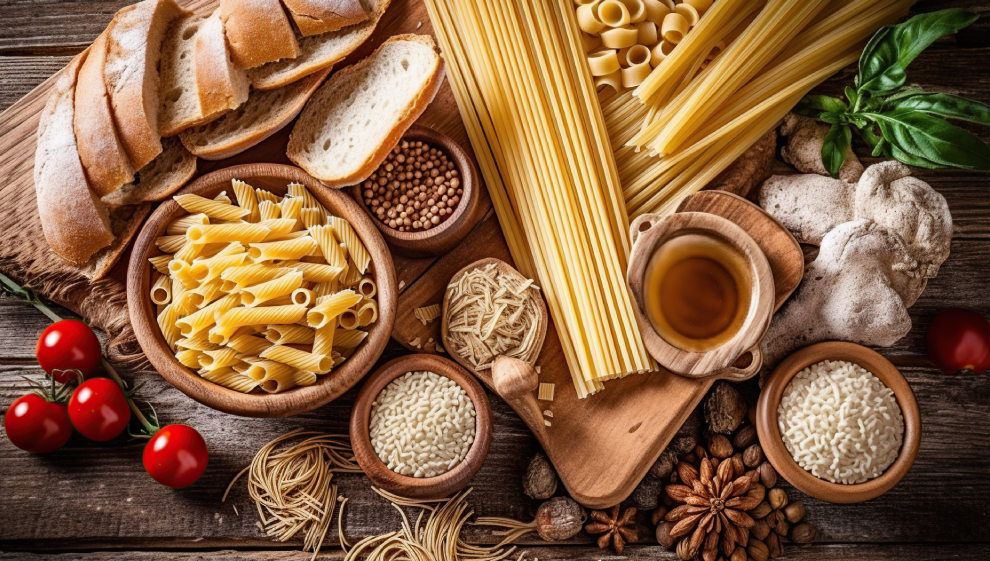Foods that can make arthritis symptoms worse
Knowing which foods to avoid with arthritis can be tricky. Keep reading for detailed information on dietary restrictions and tips on how managing your diet can help reduce common symptoms associated with rheumatoid arthritis and osteoarthritis.
1. Inflammatory foods
A big part of managing arthritis is minimising joint inflammation that typically occurs when our immune system mistakenly attacks the tissue in our joints to cause irritation, tenderness, stiffness, ‘warm’ sensations, and even long-term damage.
Certain foods can accelerate this process, making a healthy diet that excludes arthritis ‘trigger’ foods important (especially if you have rheumatoid arthritis) when thinking about condition management.
Foods that can cause arthritis flare-ups include:
- Processed meats
- Red meat
- Refined carbohydrates
- Fried foods
- Sugary drinks
- Excessive alcohol
- High salt foods
- Trans fats
- Full-fat dairy products
- Certain vegetable oils
Keeping a food diary is a great place to start when it comes to inflammation. Make a list of all the foods you eat across the span of a week and note down when and where your inflammation gets worse.
From here, try systematically eliminating foods you suspect may be contributing to inflammation and note whether your symptoms change for the better or worse when you remove them from your diet.
2. High cholesterol foods
Evidence suggests there may be a link between eating a high cholesterol diet and an increased risk of osteoarthritis.
This is because low-density lipoprotein (LDL) or ‘bad cholesterol’ can accumulate in the synovial fluid and cartilage of our joints. When this builds up, it can cause oxidative stress and the production of inflammatory molecules like cytokines and chemokines that wear away at our cartilage and contribute to joint pain and swelling.
Common high cholesterol foods to think about reducing include:
- Eggs
- Red meat (such as beef, lamb, and pork)
- Organ meats (like liver and kidneys)
- Butter, cheese, and cream
- Processed meats (such as sausages and bacon)
- Fried foods
- Fast food
- Baked goods
High cholesterol levels are also associated with obesity and diabetes, which can increase inflammation because we’re putting unnecessary stress on the body. This can damage joint tissue and impair the body's ability to repair and maintain healthy cartilage.
One of the most effective ways of reducing LDL cholesterol levels is to reduce and manage our weight. We can do this by reducing our intake of processed foods that are high in saturated fats and replacing them with healthy fat options that contain more high-density lipoprotein (HDL).
3. Certain meat products
Processed meat
Processed meat refers to any meat product that has been modified to improve its taste, shelf life, or texture.
In general, processed meat is bad for our health. This is because the processes we use to preserve or enhance flavour typically include salting, smoking, or adding preservatives, all of which can increase our risk of cancer and rheumatoid arthritis.
Processed meats include:
- Beef
- Pork
- Fried chicken
- Canned or packeted meats
- Sausages and hotdogs
- Lamb
Perhaps the strongest link between arthritis and eating a diet that’s high in processed food is that treated and manufactured foods can cause weight gain and lead to obesity, which puts additional stress on our joints and our musculoskeletal system.
Red meat
Red meat refers to meat that’s characterized by its red colour when it’s raw.
The three most common red meats eaten in the UK are:
- Beef
- Pork
- Lamb
Recent research indicates that eating a diet that’s high in red meat may worsen the symptoms of rheumatoid arthritis and that consuming a plant based diet that excludes red meat may have the opposite effect.
4. Alcohol

It’s thought that the type of alcohol and the amount that’s consumed are the biggest indicators of whether you will see a reduction in certain inflammation markers or not.
A study found that women who drank a small amount of alcohol over the course of a week (four glasses of wine) saw their risk of developing rheumatoid arthritis decrease by 37%.
While the broader relationship between arthritis and alcohol is still being explored, the impact it can have on gout (a specific type of arthritis) is well understood. Gout is a disease that affects the body’s ability to metabolise and flush out uric acid. Certain alcoholic beverages are high in ‘purines’ (natural substances in our body that break down into uric acid), which can trigger gout attacks and cause an inflammatory response that can be incredibly painful.
5. Vegetable oils
Unhealthy vegetable oils are often used in the preparation of fast food and takeaways because they’re cheap and they enhance flavour. Unfortunately, they’re bad for our health when consumed regularly because of their high levels of omega-6 fatty acids.
Try your best to avoid regularly consuming foods that are fried in any of the following:
- Corn oil
- Safflower oil
- Sunflower oil
- Vegetable oil
These unhealthy options typically lack the beneficial omega-3 fatty acids that have anti-inflammatory properties and are found in leaner foods like fish, flaxseeds, and walnuts. For individuals with arthritis, try opting for healthier alternatives like olive oil, avocado oil, and oils that are rich in these beneficial omega-3s where possible.
6. Fizzy drinks
One study involving over 1200 adults aged 20 – 30 who drank fructose-sweetened drinks at least five times per week or more were three times more likely to have arthritis than those who didn’t.
It’s thought that fizzy and sugary drinks can be problematic because they typically contain high levels of added sugars like sucrose or high fructose corn syrup. These sugars can cause chronic inflammation throughout the body, which is a contributing factor in the development and progression of arthritis.
The benefits of cutting out fizzy drinks may be amplified because consuming less sugar can result in weight loss, which has a dramatic impact on the amount of stress and strain that’s placed on our joints.
If you’re finding cutting down on sugar difficult, know that it’s not all bad news. Studies merely show that there is an association between arthritis and sugar, not that you definitively develop or worsen your condition if you continue consuming it. To make things easier, try shopping around for lower or sugar-free alternatives to your favourite snacks and drinks that satisfy your cravings.
Interested in upping your water intake? Click here for tips on how to get started.
7. Nightshades
Nightshades (known scientifically as Solanaceae) are a group of plants and vegetables that can be problematic for people with arthritis. It’s thought that this is because they contain higher levels of the compounds solanine and capsaicin, which is a natural pesticide that protects them against insects.
Nightshade vegetables include:
- Tomatoes
- Chilli peppers
- Potatoes
- Goji berries
- Peppers
- Aubergines
Some studies suggest that these plants and vegetables can trigger inflammation, but the data isn’t conclusive on this. Other research seems to indicate that this group of foods may actually have a positive effect on joint pain and inflammation.
The best place to start if you’re curious about their effect on you is to start a food diary and exclude them one by one to see if your inflammation and joint pain gets any better.
8. High ‘AGE’ foods
People with inflammatory arthritis often have higher levels of advanced glycation end products (AGEs) in their body.
AGEs are harmful compounds that form when certain sugars, fats, and proteins react with one another. They naturally exist in certain foods and can be released into our body when we eat things that have been cooked at a high temperature.
They can trigger inflammation by binding to specific receptors on immune cells and activating inflammatory pathways. If we continue eating foods which trigger this response, chronic inflammation can accelerate the destruction of joint tissue that we see in arthritis.
The impact of reducing AGE levels or blocking their harmful effects is an ongoing area of research. Currently, dietary adjustments and experimenting with limiting diets that eliminate foods that may trigger inflammation (for many people this means reducing processed and fast-food consumption) is the best way to work out which foods work for you.
9. Gluten-heavy foods

Eliminating the consumption of gluten is most notably associated with celiac disease, which is an autoimmune disorder that causes an immune response when gluten proteins in rye, wheat, and barely is consumed.
While the connection between gluten consumption and celiac is well understood, research into the impact of gluten consumption on arthritis is less explored. Research has emerged in recent years that potentially highlights the benefits of a gluten-free diet for people with rheumatoid arthritis, but definitive conclusions have yet to be made.
Last updated Wednesday 11 September 2024
First published on Wednesday 11 September 2024

